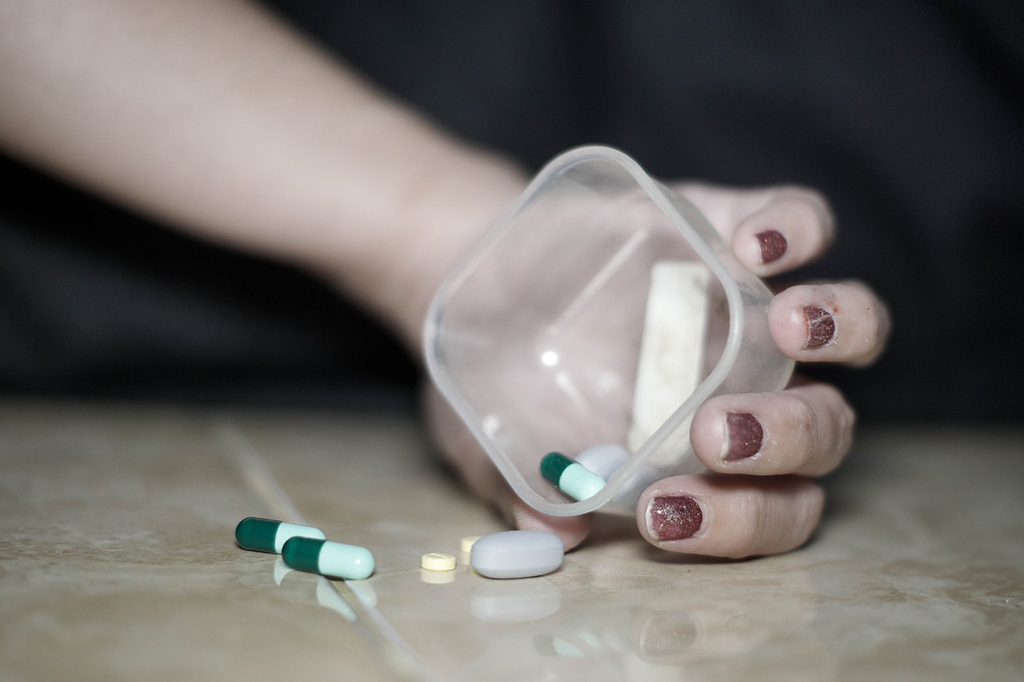There often comes a time in an addict’s life when they realise that alcohol is destroying everything they love – and that it’s time to quit. If you are someone wanting to put an end to your bad drinking habits, it’s important to understand that detoxing at home can be dangerous and involve high risks if you have spent many years drinking heavily on a daily basis.
What is Alcohol Addiction?
Alcohol addiction, also known as alcohol dependence, is the strong and uncontrollable desire to drink every day. This obsession impacts negatively on relationships, work life and health. Sufferers will often build up a tolerance to alcohol and then experience intense physical withdrawal symptoms when they try to quit.
Alcohol Withdrawal Symptoms
More than half of those who are addicted to alcohol will experience some kind of withdrawal symptoms and of that group, about 5 percent will experience severe symptoms.
Some of the negative physical and mental symptoms of alcohol withdrawal include:
- Headaches
- Heart palpitations
- Seizures
- Anxiety
- Restlessness
- Tremors
- Nausea
- Vomiting
- Loss of appetite
- Confusion
- Irritability
- Mood swings
- Sweating
- Fever
The most severe physical symptom that alcohol addicts can suffer is known as Alcohol withdrawal delirium (AWD) and it can cause sudden and acute problems with your nervous system and brain. The condition only affects people who have been drinking heavily for prolonged periods of time – particularly if they stop suddenly, don’t eat/drink enough during the detox, are suffering from an underlying illness or have a family history of AWD.
Alcohol’s Impact on the Brain
Alcohol interferes with gamma-aminobutyric acid (GABA), a neurotransmitter that induces a feeling of relaxation and sedation. When someone drinks too much, their speech becomes slurred, they feel sleepy and have trouble walking in a straight line. This is due to there being too much GABA in their body. The problem with excessive, regular drinking is that the body becomes used to the alcohol and the brain adjusts accordingly. What does this mean if you stop suddenly? You won’t get enough GABA and that will cause feelings of anxiety, panic and sometimes result in seizures.
Who can Detox at Home?
If you feel that you can’t function without alcohol, it is important you get medical advice before you begin your alcohol detox at home. There are a number of things that can be done to ease the symptoms of withdrawal including cognitive behavioural therapy (CBT), group work, counselling and medication.
Depending on your level of alcohol dependence, you might be able to detox at home without this kind of assistance – and will hopefully only experience mild withdrawal symptoms but if you consume more than 20 units of alcohol a day or if you’ve suffered from withdrawal symptoms in the past, it’s strongly recommended you detox under the care of a professional team and with medical attention.
What to Expect When You Detox at Home?
The first 48 hours are the most challenging and will usually involve many physical symptoms that cause discomfort and pain as your body tries to adjust to being without alcohol. These symptoms normally persist for 3-7 days from the time of your last drink. During this time, it’s common for addicts to have trouble sleeping. It’s important you drink plenty of fluids (preferably water) during this time as that helps with the detox process. Also try to avoid drinking a lot of coffee or energy drinks with caffeine as they can cause dehydration and interrupt sleep patterns.
Many addicts don’t feel like eating for the first few days of the detox but it’s vital that you try to eat something even if you’re not hungry. Remember that detoxing can be an emotional and stressful time so be sure to have some moral support if you are doing it on your own. Try to listen to relaxing music, do gentle exercise and if you can’t talk to someone – try to write down your feelings so you don’t bottle them up inside.
Medications that Can Help with Alcohol Withdrawal Symptoms
There are many variables when it comes to the severity of symptoms that alcohol addicts suffer when they stop drinking. It depends on how long they have been abusing alcohol, the amounts of alcohol they consume on a daily basis, family history and overall mental health and wellbeing.
The National Institute for Health and Care Excellence (NICE) recommends several drugs to assist with alcohol withdrawal such as Acamprosate, Disulfiram, Naltrexone and Nalmefene. These drugs can help to stabalise neurotransmitters, alleviate nausea and vomiting, and assist with pain management. It’s important you have a full medical examination including blood tests before taking any of these medications.
Professional Help with Alcohol Detox at The Dawn Rehab

It’s clear that alcohol addicts who want to give up drinking take a huge risk by trying to achieve sobriety by detoxing from alcohol at home. The best way to detox off alcohol is under medically supervised detox at a drug rehabilitation centre like The Dawn Rehab in Chiang Mai, Thailand.
We offer a 28-day alcohol inpatient treatment which includes a thorough medical check with blood tests and admission to drug/alcohol free accommodation where you will be set a detox regime under the guidance of our doctor and psychiatrist. Our staff will be available 24/7 to provide you with support including medical emergency to help ease the pain of withdrawal from alcohol. Contact us today for a consultation so that we can assess how we can help.
Related Posts
 Medical Detox: An In-Depth Guide
Deciding you have an alcohol or drug addiction and considering a medical detox is the first step towards taking your life back. The idea of quitting can feel overwhelming for...
Medical Detox: An In-Depth Guide
Deciding you have an alcohol or drug addiction and considering a medical detox is the first step towards taking your life back. The idea of quitting can feel overwhelming for...
 Alcohol and Drug Detox: Why it is Unwise to Go Cold Turkey
You’ve finally reached a breaking point with your addiction and are on the cusp of going cold turkey – alone. Before you cut yourself off, make sure you know what...
Alcohol and Drug Detox: Why it is Unwise to Go Cold Turkey
You’ve finally reached a breaking point with your addiction and are on the cusp of going cold turkey – alone. Before you cut yourself off, make sure you know what...
 Alcohol Detoxification Process in an Alcohol Rehab
Did you know that in the U.S., 17.6 million people suffer from alcohol use disorder or AUD? However, sadly, only a fraction of those Americans seek assistance from a professional...
Alcohol Detoxification Process in an Alcohol Rehab
Did you know that in the U.S., 17.6 million people suffer from alcohol use disorder or AUD? However, sadly, only a fraction of those Americans seek assistance from a professional...
 A Comprehensive Guide to Understanding High-Functioning Alcoholics
Alcohol addiction can be misleading. Some people drink excessively but do not appear to be an alcoholic because they are responsible and take care of their duties at work and at...
A Comprehensive Guide to Understanding High-Functioning Alcoholics
Alcohol addiction can be misleading. Some people drink excessively but do not appear to be an alcoholic because they are responsible and take care of their duties at work and at...





